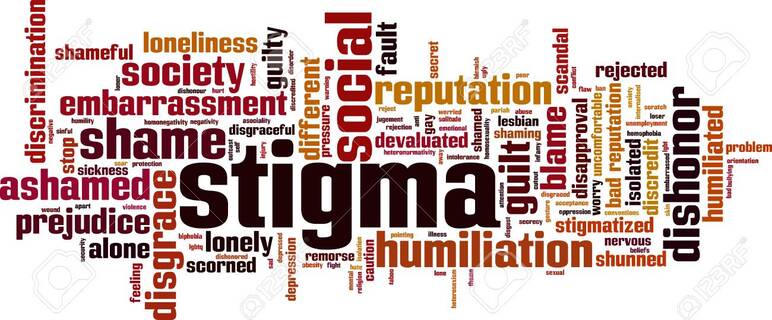What is Stigma?
Stigma is a perceived negative attribute that causes someone to devalue or think less of the whole person. Stigma can be defined as prejudicial attitudes, beliefs, behaviors, and even discrimination against people with substance use disorders or other behavioral health issues.
Public or Social Stigma |
What does it look like? |
|
Public or Societal Stigma is the public’s reaction to individuals with a stigmatizing condition (such as substance use disorder or other behavioral health issues). Public stigma is exemplified through the public’s behavior and includes groups such as educators, employers, healthcare providers, journalists, and police among others.
|
|
Personal and Self Stigma |
What does it look like? |
|
Personal or Self Stigma is the internalization of publicly stigmatized beliefs. Self-stigma can result in shame, guilt, social withdrawal, and isolation
|
|
Structural Stigma |
What does it look like? |
|
Structural Stigma include policies and procedures that limit the opportunities of people with substance use disorder or other behavioral health issues.
|
|
Examples of Stigma
- Hurtful words and labels such as "drug abuser", “junkie,” “addict,” and “alcoholic”
- Perception that addiction is a personal choice
- Receiving lower quality of care in the healthcare system
- Being profiled by law enforcement
- Believing that people experiencing addiction aren’t worth saving
Books
|
What if everything you think you know about addiction is wrong? One of Johann Hari’s earliest memories is of trying to wake up one of his relatives and not be able to. As he grew older, he realized he had addiction in his family. Confused, unable to know what to do, he set out on a three-year, 30,000-mile journey to discover what really causes addiction – and what really solves it.
His discoveries led him to give a TED talk and animation which have now been viewed more than 25 million times. He uncovered a range of remarkable human stories – of how the war on drugs began with Billie Holiday, the great jazz singer, being stalked and killed by a racist policeman; of the scientist who discovered the surprising key to addiction; and of the countries that ended their war on drugs – with extraordinary results. This is the story of a life-changing journey that showed the world the opposite of addiction is connection. The book has been adapted into the Oscar-nominated film, ‘The United States Vs Billie Holiday.’ |



